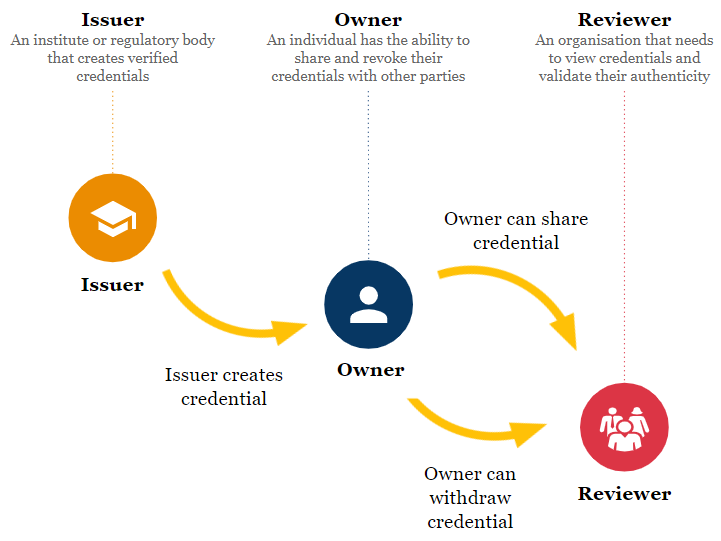CVs go paperless as PwC develops digital platform with ICAS for sharing qualifications
PwC is transforming the way professionals share their credentials by using blockchain technology to issue staff with digital versions of their certifications, kept in virtual wallets.

The launch of PwC’s Smart Credentials platform gives the owners complete control over sharing their credentials digitally, with reduced exposure to fraud. It is being trialled by PwC staff who have qualified with the Institute of Chartered Accountants of Scotland (ICAS) in the last two years.
Many organisations spend significant amounts of time and money every year contacting universities and institutions to double check qualifications listed on CVs so for them, this new blockchain platform offers both reduced risk and costs.
Steve Davies, global blockchain leader at PwC, said: “The ability to prove your identity online is critical in today’s digital world and the same is true of the qualifications you hold. We’re seeing high demand for verified, trusted and irrefutable identities from many different types of organisations, but a common challenge for employers is ensuring that an applicant holds the credentials listed on their CV.
“Like many others, I take pride in the certificate hanging on my wall but cannot take it down and share it when I need to, or keep a digital record of my ongoing professional development. Blockchain is traditionally associated with financial uses given its link to cryptocurrencies, but there are a wealth of potential use cases for this emerging technology and one of them is in overcoming the challenges of digital identity.
“Blockchain was designed to allow participants to share data without needing intermediaries. No one party has central ownership, so individuals get more control over their personal data. In this first project with ICAS, the data is a Chartered Accountant certificate, but you can also see the potential in any case where credentials are earned and continually updated - such as medical professionals, pilots or safety engineers.”
Smart Credentials is a platform, underpinned by blockchain, that gives the owner of a credential control of their data, while also simplifying the process for regulators or institutions who issue credentials, as well as the reviewers who need to check them.
In this pilot, the owner is the recently qualified chartered accountant at PwC; ICAS issues the digital certificate to that person and it will then be part of their digital wallet and can be updated with ongoing personal development and be shared with others on request in a safe and secure way.
Many organisations issuing qualifications today, including ICAS, are looking to move away from paper-based certificates and embrace emerging technologies. Issuing a credential on blockchain allows them to offer a new and trusted digital service for their clients and improve efficiencies.
For reviewers (e.g. employers), it allows for someone’s credentials to be validated more simply and could reduce both risk and cost in the qualification screening process.
Bruce Cartwright, chief executive of ICAS, said: “Data protection is arguably one of the most enduring challenges of our time. Our newly-qualified Chartered Accountant members involved in this trial can now take control of their personal data by replacing the paper-based certificate with a secure digital version. Not only this, but the technology allows instant verification of their credentials, putting an end to the back-and-forth involved in establishing good standing and ensuring our members can get on with their jobs.”
Jon Andrews, head of technology and investments, PwC, said: “Our blockchain team is one of several groups of emerging technology specialists we’ve established to help us and our clients embrace and respond to disruptive trends.
“With so many areas of our daily lives going paperless - from bank statements to household bills - it’s now the turn of qualifications. In a world where digital trust is becoming an increasingly complex issue, in this context blockchain has the potential to both build trust by establishing a single source of truth and allow users to take back control of their digital identity.”



